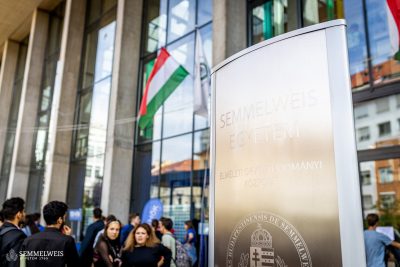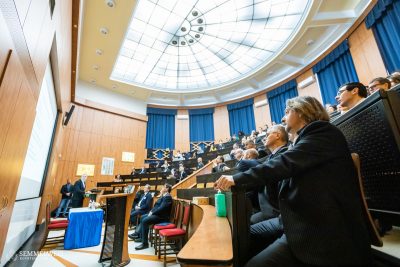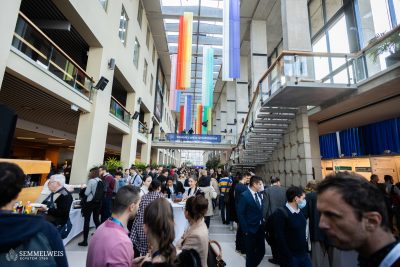On 3 February, the first Vienna-Budapest Urooncology Meeting was organized for the first time by the Department of Urology of Semmelweis University. The aim of the event was to promote research collaboration and exchange of experience for the benefit of urological cancer patients.
More than thirty researchers, residents and PhD students from the Departments of Urology of the Medical University of Vienna and Semmelweis attended the event, where participants were able to listen to a series of interactive presentations on the latest research on prostate and bladder tumours.
In his welcome speech, Dr. Alán Alpár, Vice-Rector for International Studies, presented the development of Semmelweis University’s international relations and academic reputation in recent years and praised the participants’ initiative in joint work.
In his opening speech, Dr. Péter Nyirády, Director of the Department of Urology, emphasized that the cooperation between the two institutions will facilitate the faster translation of research results into practice and the development of innovative solutions to address common challenges in medicine.
Dr. Shahrokh Shariat, Head of the Department of Urology at the Medical University of Vienna, a world-renowned urologist, stressed that we Central Europeans are bound together by our history and culture, which is an important advantage in working together.
Following the presentations, the researchers held a small group workshop to lay the groundwork for future collaborations between the two institutions with a long history. Dr. Tibor Szarvas, Head of the Research Laboratory of the Department of Urology, highlighted among the research projects that have been identified the creation of primary cell cultures from tumours, which can help to select the most appropriate treatment for oncology patients, and the introduction of genetic tests to predict the sensitivity of tumours to therapy, thus improving the effectiveness of treatment.
In addition, several non-oncological topics were presented on the management of urinary incontinence and male infertility. Dr. Tamás Fazekas, resident and PhD student at the Department of Urology, the organizer of the event, said that it was an uplifting feeling to reflect with so many young researchers under the guidance of the greats of the profession, which not only contributes to the expansion of scientific knowledge but also to the establishment of friendships.
Tamás Fazekas, Department of Urology
Translation: Gábor Kiss
Photo: Bálint Barta – Semmelweis University


